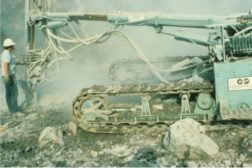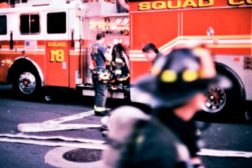Environmental Health and Safety
Foundry industry says lower PEL unnecessary, too costly
Read More
Fracking “peace treaty” appears shaky
Not everyone happy about tougher standards program
March 22, 2013
ACGIH releases 2013 editions of TLVs and BEIs book and Guide to Occupational Exposure Values
User-friendly, pocket-sized book
March 19, 2013
New guides help oil and gas industry with disease, fatigue
Improving both health, performance is goal
March 14, 2013
Rookie first responders traumatized by…trauma
Experience helps police officers, firefighters cope
March 12, 2013
Manufacturers’ biggest concern: Health care costs
Survey also finds support for immigration reform
March 12, 2013
Ohio workers exposed to lead, other hazards
Repeat violations get Mahle Engine Components SVEP status
March 11, 2013
Goodbye to the “good ole days”
Getting safety practices in tune with the tight times
March 7, 2013
“Non-classic” confined spaces
Accurate assessments are essential to safeguard occupants
March 6, 2013
Become a Leader in Safety Culture
Build your knowledge with ISHN, covering key safety, health and industrial hygiene news, products, and trends.
JOIN TODAYCopyright ©2025. All Rights Reserved BNP Media.
Design, CMS, Hosting & Web Development :: ePublishing










